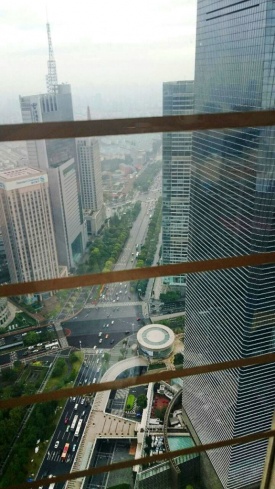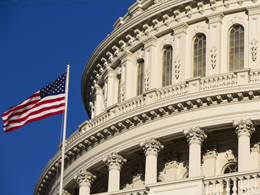by Mawer Investment Management, via The Art of Boring Blog
It was my second day on a research trip in Beijing, China and I took the subway to meet with an old friend for lunch at a restaurant inside the Parkview Green shopping mall. When we were finished, I stopped by the public washrooms. After immigrating to Canada from China over 16 years ago and being accustomed to a western lifestyle, I shuddered at the thought of having to use the public washrooms in China. In my past experience, most, if not all, were stinky, dirty, and had no toilet paper available for public use. My counterattack strategy involved taking a deep breath and trying (but sadly, often failing) to hold my breath for the duration of the ”exercise.” The washrooms that scared me the most were the places where there were no doors on the stalls—I guess there’s your incentive for efficiency? One of the most important survival tricks when travelling in China was to have toilet paper with me at all times.
When I entered the public washroom after lunch that day, I found, to my great surprise, that it was impeccably clean and there was even free toilet paper in each individual stall!
While that was probably the best public washroom experience I had in China during my research trip, I did find that most of the washrooms I stumbled upon at train stations, airports, shopping malls, and tourist attractions did not give me nightmares; many of them were decently clean and had toilet paper. To my disbelief, I survived this three week trip without reaching into my pocket for toilet paper the majority of the time.
Much has been written about China in recent months. A lot of the fears surrounding China’s industrial overcapacity, bad-debt-laden banking system and mounting global ambitions are valid risks. However, these stories also fall into very familiar narratives; narratives that don’t always leave room for nuanced or alternative perspectives, and which sometimes miss some of the themes at work. Yet alternative narratives exist.
I grew up in China. And after recently travelling to 11 cities and speaking with 60 companies my view on the country has shifted; I have come to understand that China has not only made progress in its infrastructure but also in its culture. Call it my toilet paper index theory.
To my understanding, toilet paper was historically not placed in Chinese public washrooms because officials feared it would be stolen or that the public would be wasteful (taking two meters of toilet paper in one go). This is not fully the case today. And although toilet paper might seem like a superfluous detail to someone who has lived their whole life in a society in which there is a high degree of trust (like Canada), I view it as a microcosm for what appears to be a broader cultural shift taking place.
Evidence of cultural change in China is everywhere—it is not just confined to washrooms. Chinese people today now seem much more familiar with the outside world. In Shanghai, a 老外 laowai (foreigner) walking down the street is no longer a rarity that would be stopped and stared at by the crowd. Likewise, there appears to be a changing attitude towards limited resources—primarily personal space. I witnessed at least two occasions where a Chinese citizen gave up his/her seat to an elder or small child on the subway.
However, it is not only among individuals that culture is shifting: the business culture in China is evolving too (if slowly). Despite China being a strictly communist society only a few years ago, some companies I spoke to seemed to understand the concept of return on capital and the importance of increasing returns to shareholders. Many private-sector (non-SOE) publicly traded companies such as Tencent, Fuyao Glass, Zhengzhou Yutong Bus, and Midea have generated high returns on equity over a longer period of time. Even some representatives of state owned enterprises spoke as if they were operating in a free market economy and cared about profits. “We cannot depend on government policies to save us,” said an Investor Relations rep belonging to a number two company in one of the most regulated industries in China.
On a macro scale, Chinese people are also wildly more consumption oriented. The post 80’s generations’ spending habits are drastically different than their previous generations. Granddaughters are willing to spend hundreds of RMB on a face cream while grandmothers will still bike 2 km to save a few RMB. From 2001 to 2015, China’s annual cinematic revenue increased <30%. In 2015, China’s movie revenue has increased by 52% and there’s no sign of a slowdown.
Likewise, many Chinese are very quick technology adapters—faster, in some cases, than their North American counterparts. Mobile wallets are a reality in many large cities and Wechat, an app with whatsapp and social network features, has 650 million active monthly users (that’s about half of China!).
I could go on and on. But I think the point is clear: the culture in China is shifting; it is not just the economy. And this is a meaningful trend.

Of course, just because there may be changes in culture, doesn’t mean that China is now a bastion for investment. Most management teams in China still allocate capital in shocking ways, corruption remains rampant and most Western investors have a hard time trusting in Chinese businesses. There are at least as many investment landmines in China as there are potential opportunities.
Rather, this shift in Chinese culture suggests that there are other stories we need to be aware of when it comes to China—not just the current, big headlines. The undergoing changes may seem subtle, and not necessarily the kind of juicy noise that typically dominates international headlines, but if what I think is happening is truly happening, then its long-term consequences could be significant.
Upon arrival back in Canada, I researched my toilet paper index theory and found that authorities implemented the free toilet paper regime only in selected locations in large cities. Many public toilets are undergoing a trial period to ascertain if citizens will respect and cherish the luxury of free toilet paper. So clearly, it’s not as if everything is changing and certainly not all at once. But amongst all the noise we hear about China lately, it’s important to note that some changes are happening for the better.
This post was originally published at Mawer Investment Management












